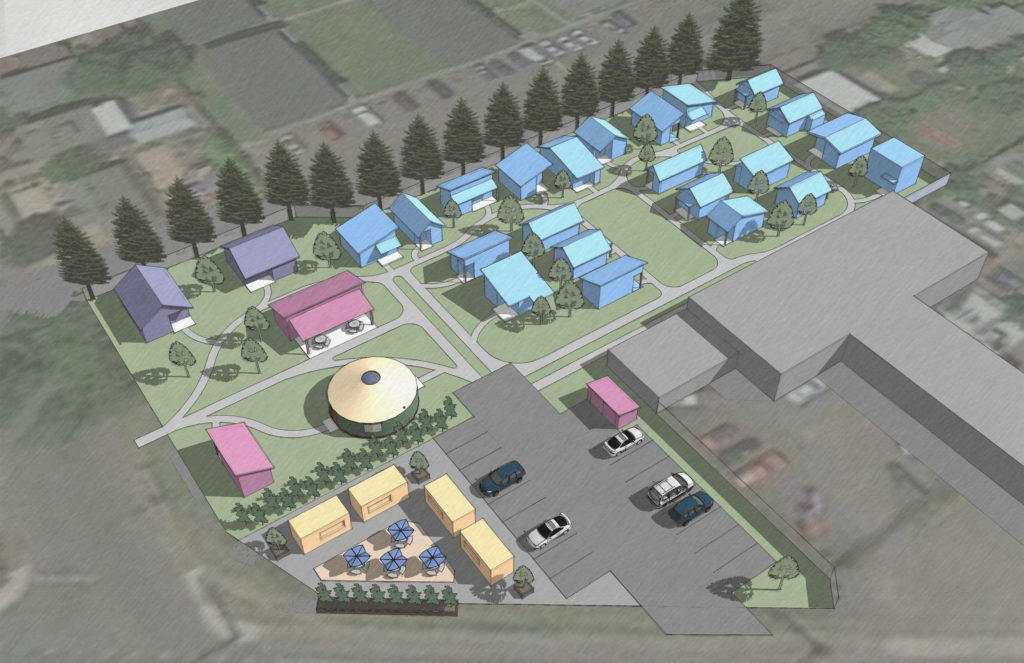
Tiny houses offer big solutions to homelessness
By Administrator
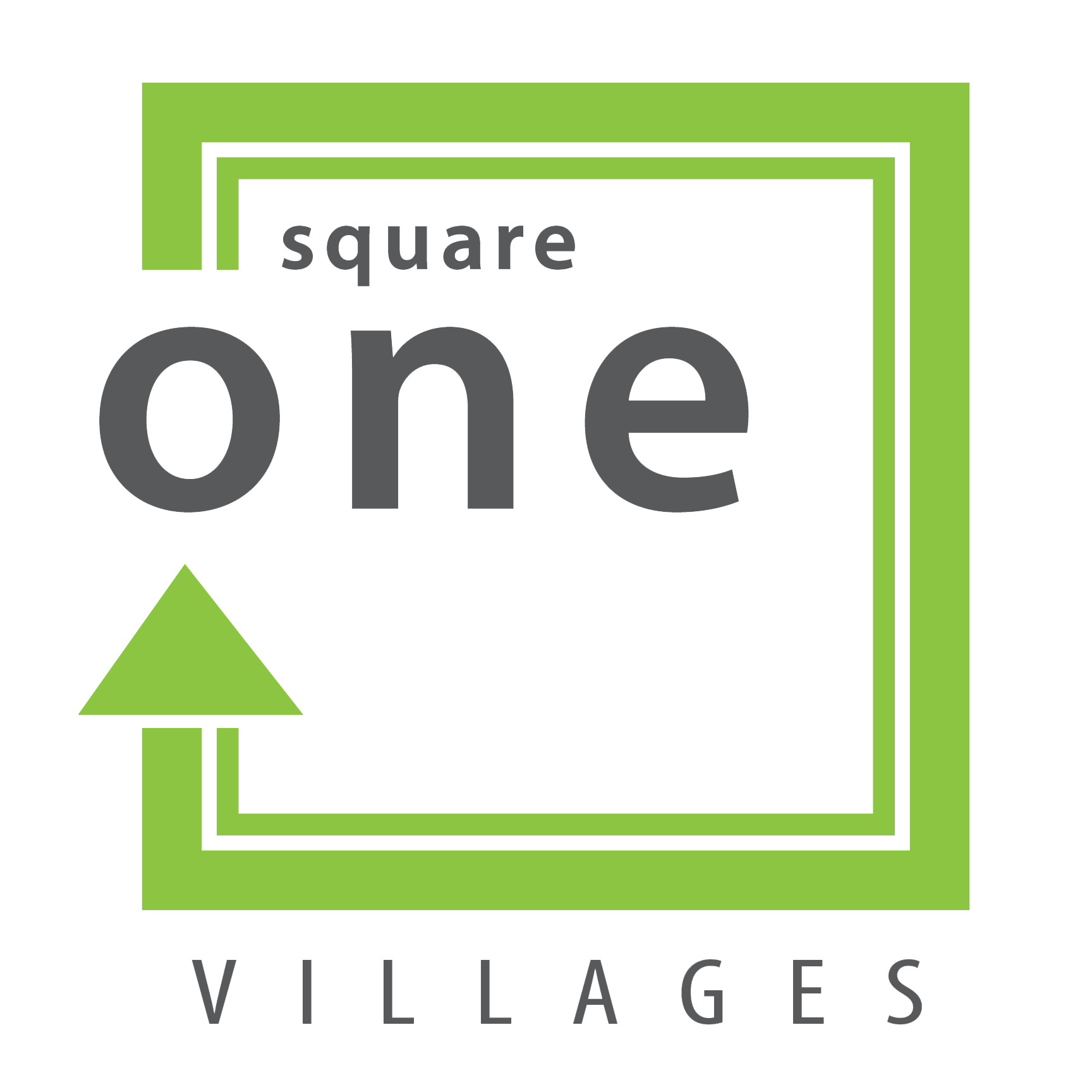 In the now infamous words of Zoolander’s raging fashion icon Mugatu, tiny houses are “so hot right now.” Tiny houses are gaining popularity for many reasons including affordability, their lower carbon footprint, and the efficient compact design.
In the now infamous words of Zoolander’s raging fashion icon Mugatu, tiny houses are “so hot right now.” Tiny houses are gaining popularity for many reasons including affordability, their lower carbon footprint, and the efficient compact design.
But what if this popular movement could be used to solve one of urban living’s biggest crises – homelessness? That is the idea behind SquareOne Villages, Foundation Beyond Belief ‘s Human Rights beneficiary.
Based in Eugene, Oregon, SquareOne Villages has a simple vision that leads to a big impact: create tiny homes for the city’s homeless which can serve as transitional housing and a step forward to a more stable life.
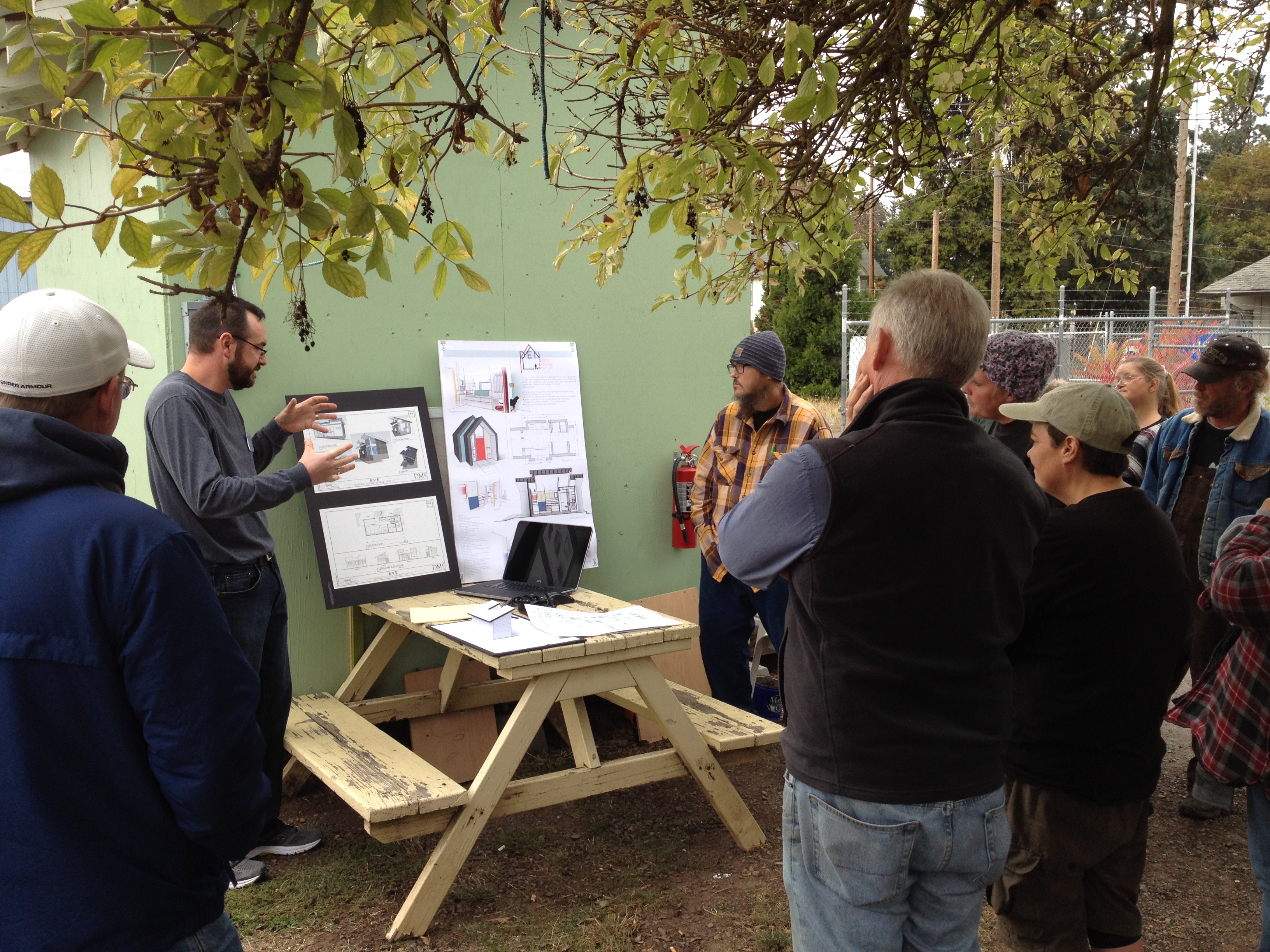 The set up is simple. In their Opportunity Village community, up to 30 formerly homeless individuals or couples live in independent micro-housing (60-80 square feet ) that are built by volunteers. The property includes communal bathrooms, kitchen and laundry facilities and common gathering spaces. The community allows every individual not only safety and security of living off the street but a community to live in and a sense of ownership of their own space.
The set up is simple. In their Opportunity Village community, up to 30 formerly homeless individuals or couples live in independent micro-housing (60-80 square feet ) that are built by volunteers. The property includes communal bathrooms, kitchen and laundry facilities and common gathering spaces. The community allows every individual not only safety and security of living off the street but a community to live in and a sense of ownership of their own space.
Every individual is participates in the in the governance and running of the village, including working 10 hours a week and attending community meeting of the village, Allowing the village to consolidate its communal duties and keep the community safe and clean.
The village doesn't just offer a place to stay, for many it is the first step to a new life. For former resident Katherine Griffith who moved to the village after she lost her job, the tiny home gave her a safe place to live and a community. According to an interview with PBS, Griffith explains what brought her there, "I kept saying it couldn’t get any worse, but then it kept getting worse. I tell people at the beginning of April of last year, I had a three-bedroom home and everything that goes with that. My two adult children were living with me, and I had a mother, and we thought everything was good. By the end of May, I had none of that; it was all gone by the end of May."
Luckily, things did get better and Griffith now has a job and an apartment downtown which she shares with her husband, Ron. He says that they move to the village was the beginning of better things for the couple, "Coming here and things just start falling into place and, you know, now we’re successful members of the community."
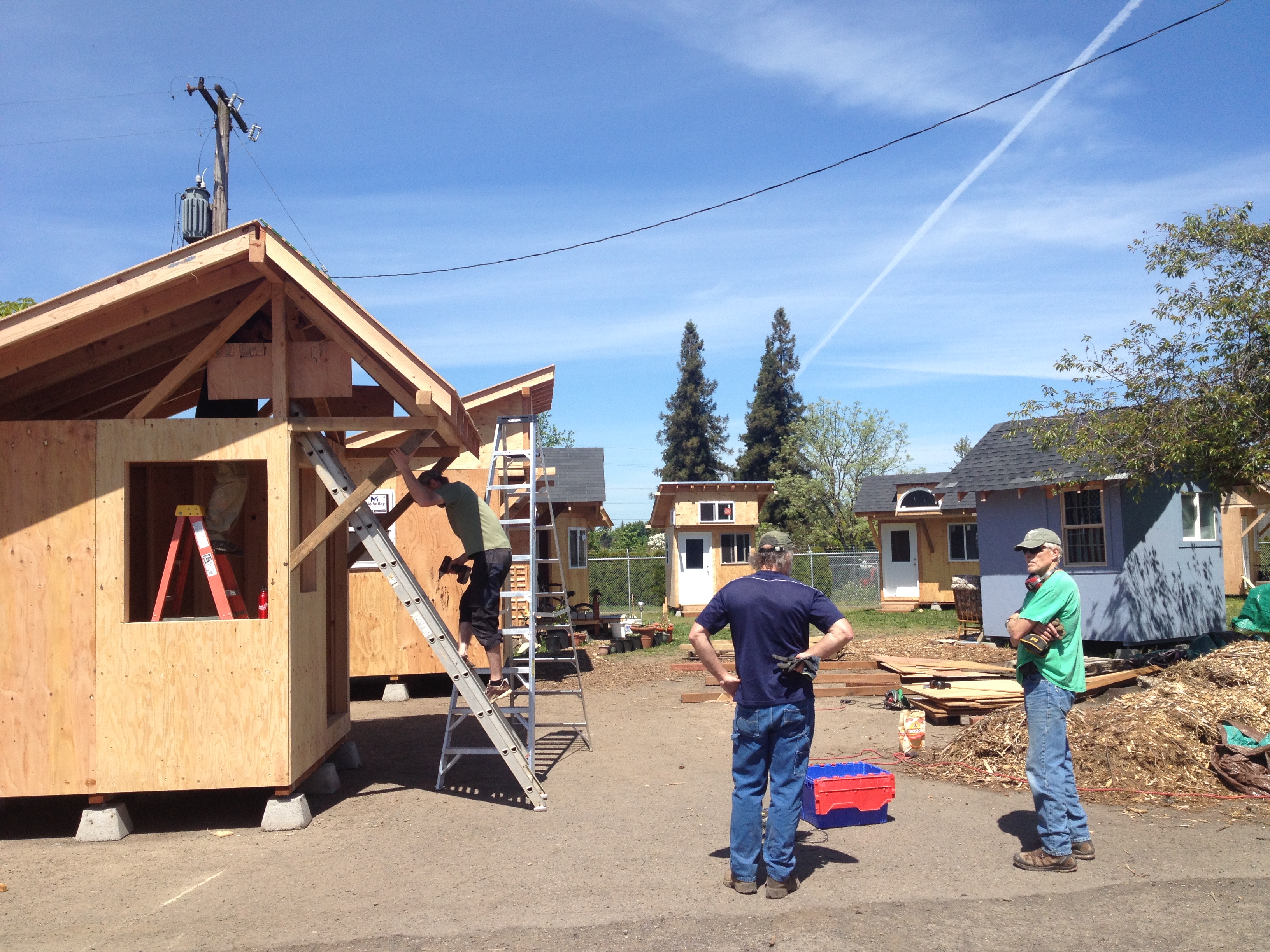 In fact, the couple married at Opportunity Village in a ceremony that highlighted the sense of community. The service was performed by a pastor who is a supporter of the group's mission and the guests played a part as well, said Katherine, "We didn’t have any music or anything, so everybody hummed the Wedding March when I walked down the aisle."
In fact, the couple married at Opportunity Village in a ceremony that highlighted the sense of community. The service was performed by a pastor who is a supporter of the group's mission and the guests played a part as well, said Katherine, "We didn’t have any music or anything, so everybody hummed the Wedding March when I walked down the aisle."
Currently under development, Emerald Village Eugene, will extend its transitional program to include semi-permanent housing solutions for its residents. The plan calls for each resident to “rent” their own dwelling including a kitchen and bath as well as living area.
The planned size of each unit is approximately 150-250 square feet. Emerald Village will focus more own ownership and less on transition as residents will pay monthly payments on the home they live in, based on their income.
The model created by SquareOne Villages has been so successful that the City Council of Eugene unanimously voted to renew the lease for their property until June 2016. They’ve had media attention from organizations such as the Guardian, Buzzfeed, PBS and CNN.
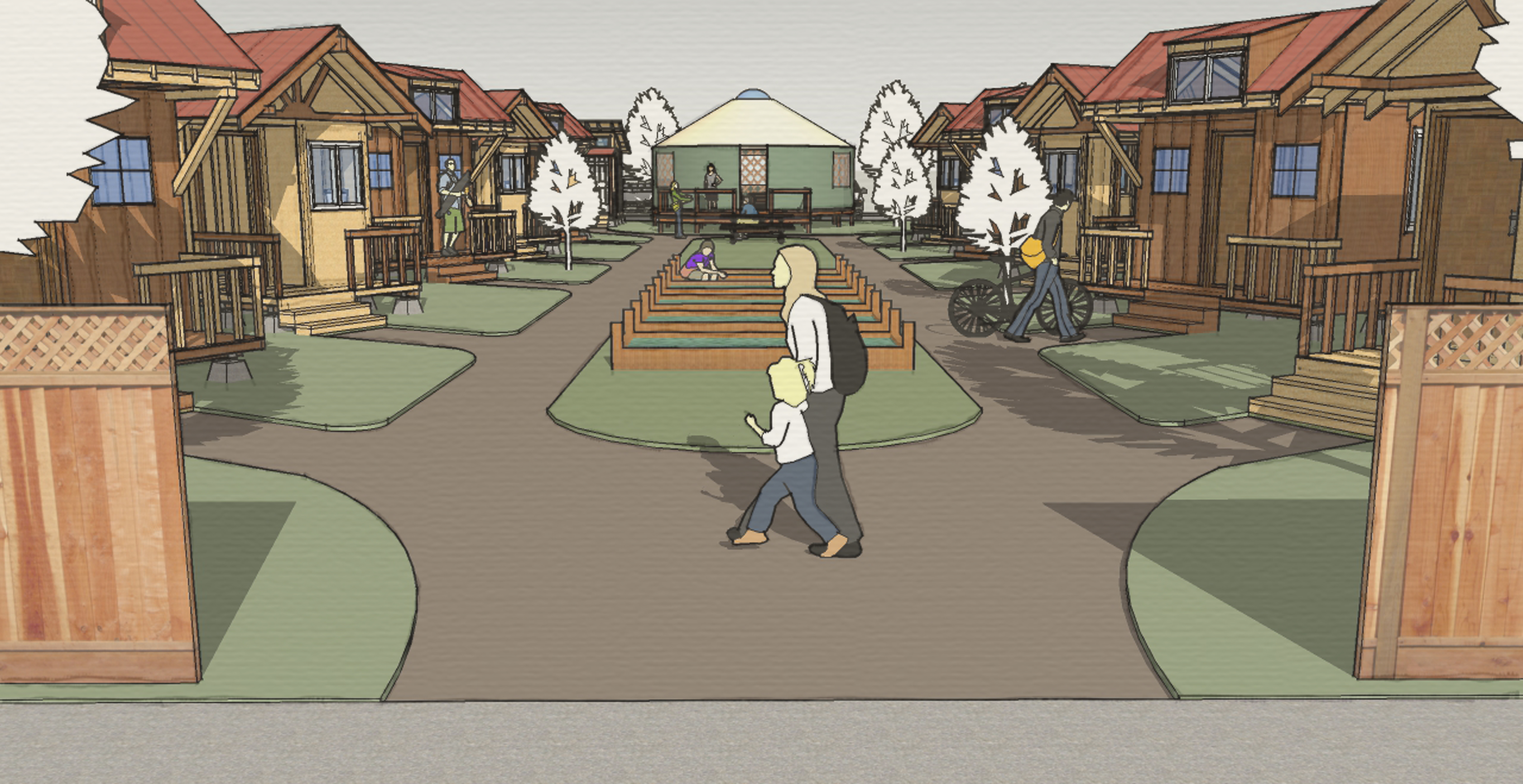 Most importantly, SquareOne Villages believes in their model – and is dedicated to seeing it replicated elsewhere. They keep detailed resources for anyone looking to incorporate their model to serve their own city’s homeless. Foundation Beyond Belief is proud to partner with SquareOne Villages and to be a part of a step out of homelessness that doesn't just offer and roof, but also a sense of control, community, and research-backed planning.
Most importantly, SquareOne Villages believes in their model – and is dedicated to seeing it replicated elsewhere. They keep detailed resources for anyone looking to incorporate their model to serve their own city’s homeless. Foundation Beyond Belief is proud to partner with SquareOne Villages and to be a part of a step out of homelessness that doesn't just offer and roof, but also a sense of control, community, and research-backed planning.
Square One Villages received a $9800 grant from Foundation Beyond Belief in 2016.
